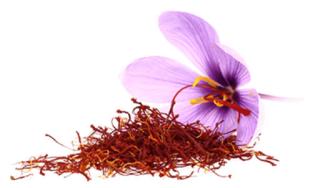
Turmeric (Curcuma longa) is a bright yellow spice commonly used in Indian cuisine, primarily in curry powders, and has been a staple of Ayurvedic and traditional Chinese medicine for centuries. Its active compound, curcumin, is known for its potent medicinal properties, and its applications in health and wellness have been widely studied in modern science. With its powerful anti-inflammatory and antioxidant properties, turmeric is hailed for its potential benefits in treating a wide array of conditions, from minor ailments to chronic diseases.
This professional description provides an in-depth examination of the benefits of turmeric, particularly focusing on its scientifically proven impact on human health, while also addressing the potential limitations and the methods for maximizing its effectiveness.
The Active Compound: Curcumin
Turmeric's primary bioactive component is curcumin, which is responsible for many of its health-promoting properties. Curcumin belongs to a group of compounds called curcuminoids, which are known for their strong anti-inflammatory and antioxidant effects. Despite its numerous benefits, curcumin has one significant drawback: it has poor bioavailability, meaning it is not easily absorbed into the bloodstream. To enhance its bioavailability, turmeric is often consumed with black pepper (piperine), which can increase curcumin absorption by up to 2,000%.
Health Benefits of Turmeric
1. Anti-Inflammatory Effects
Inflammation is a natural response of the immune system to injury or infection. However, chronic inflammation is a significant contributor to many common diseases, such as heart disease, cancer, metabolic syndrome, Alzheimer’s disease, and various degenerative conditions. Studies have shown that curcumin targets multiple steps in the inflammatory pathway at the molecular level. It blocks the action of molecules that play a key role in inflammation, such as NF-kB, a protein complex that controls the transcription of DNA and cytokine production.
Several clinical studies have demonstrated that curcumin can reduce inflammation markers in the body, suggesting it may be as effective as some anti-inflammatory drugs but without the associated side effects. For individuals suffering from chronic inflammatory diseases, the regular use of turmeric could serve as a complementary treatment, reducing symptoms and improving overall health.
2. Antioxidant Properties
Oxidative stress is another crucial factor in many diseases and the aging process. It occurs when there is an imbalance between free radicals (unstable molecules that can damage cells) and antioxidants (molecules that neutralize free radicals). Curcumin acts as a powerful antioxidant by neutralizing free radicals and increasing the activity of the body’s own antioxidant enzymes.
Research suggests that curcumin can protect cells and tissues from oxidative damage, which is particularly beneficial for preventing conditions such as cardiovascular diseases, neurodegenerative diseases, and even certain types of cancer. Its ability to enhance the body’s own defense mechanisms further underscores its potential as a preventive health supplement.
3. Cardiovascular Health
Heart disease is the leading cause of death worldwide, and curcumin’s potential role in preventing cardiovascular problems is an area of active research. The protective effects of turmeric on the heart are thought to result from its ability to improve the function of the endothelium, the lining of the blood vessels. Endothelial dysfunction is a major driver of heart disease, as it leads to an inability to regulate blood pressure, blood clotting, and other important factors.
Studies have shown that curcumin improves endothelial function in individuals with type 2 diabetes and can reduce the risk of developing heart disease. Additionally, curcumin’s anti-inflammatory and antioxidant properties contribute to its cardioprotective effects by reducing inflammation and oxidative stress, both of which are major risk factors for heart disease.
In a study involving postmenopausal women, curcumin was shown to be as effective as exercise in improving endothelial function. This suggests that turmeric supplements could be a valuable addition to traditional interventions such as diet and physical activity for individuals at risk of cardiovascular disease.
4. Cancer Prevention and Treatment
One of the most exciting areas of research on turmeric involves its potential in cancer prevention and treatment. Curcumin has been shown to affect the growth, development, and spread of cancer at the molecular level. It contributes to the death of cancerous cells (apoptosis) and inhibits the growth of new blood vessels in tumors (angiogenesis), preventing the spread of cancer (metastasis).
While more research is needed, preliminary studies suggest that curcumin may help prevent several types of cancer, including colorectal, pancreatic, prostate, breast, and lung cancers. In animal models, curcumin has been shown to reduce the growth of tumors, while in humans, curcumin supplements have been linked to reduced tumor development in individuals with precancerous conditions such as adenomatous polyps.
Researchers are particularly interested in curcumin's ability to target cancer stem cells, which are thought to be responsible for the growth and recurrence of tumors. Though turmeric should not be considered a substitute for conventional cancer treatments, its use as an adjunctive therapy shows promising potential.
5. Neuroprotective Effects
Alzheimer's disease is the most common neurodegenerative disorder in the world, and there is currently no effective cure. Curcumin’s ability to cross the blood-brain barrier has spurred significant interest in its potential role in the prevention and treatment of Alzheimer’s and other neurodegenerative conditions.
The accumulation of amyloid plaques in the brain is a hallmark of Alzheimer's disease, and curcumin has been shown to reduce the formation of these plaques in animal studies. Furthermore, curcumin's anti-inflammatory and antioxidant properties may help prevent damage to brain cells, potentially slowing down or preventing the progression of neurodegenerative diseases.
Some studies suggest that curcumin may also benefit individuals with depression, as chronic inflammation and oxidative stress are known to contribute to mood disorders. Curcumin can increase brain-derived neurotrophic factor (BDNF), which is involved in promoting the health of neurons and improving cognitive function.
6. Arthritis and Joint Health
Arthritis is a common condition characterized by inflammation in the joints, leading to pain and stiffness. As a potent anti-inflammatory compound, curcumin has been studied extensively for its potential role in alleviating symptoms of arthritis, particularly rheumatoid arthritis and osteoarthritis.
Several clinical trials have shown that curcumin can reduce joint inflammation and pain in individuals with arthritis. In one study, curcumin was found to be as effective as ibuprofen in reducing pain and improving mobility in individuals with osteoarthritis, without causing the gastrointestinal side effects commonly associated with NSAIDs (nonsteroidal anti-inflammatory drugs).
For individuals with rheumatoid arthritis, which is an autoimmune disorder, curcumin can help modulate the immune system and reduce flare-ups. While more research is needed to fully understand the mechanisms by which curcumin works in the treatment of arthritis, its potential to provide natural relief from joint pain makes it a valuable supplement for those suffering from chronic joint conditions.
7. Digestive Health
Turmeric has long been used in traditional medicine as a remedy for digestive issues. Modern science has validated its benefits for digestive health, particularly in conditions such as indigestion, bloating, and inflammatory bowel disease (IBD). Curcumin's anti-inflammatory properties can help reduce inflammation in the gastrointestinal tract, which is especially beneficial for individuals with IBD, such as Crohn's disease and ulcerative colitis.
Additionally, curcumin may help protect the lining of the stomach and intestines from damage caused by oxidative stress and inflammation. Some studies suggest that curcumin can help manage symptoms of irritable bowel syndrome (IBS), a condition characterized by abdominal pain, bloating, and irregular bowel movements.
8. Liver Health and Detoxification
The liver plays a central role in detoxifying the body, and turmeric has been shown to support liver function and promote detoxification. Curcumin can protect the liver from damage caused by toxins, reduce inflammation in the liver, and even promote the regeneration of liver cells. For individuals with liver conditions such as fatty liver disease, regular consumption of turmeric may help improve liver health and function.
Additionally, curcumin's ability to enhance the activity of certain enzymes involved in detoxification makes it a valuable ally in supporting the body's natural detox processes. This is particularly important for individuals exposed to environmental toxins, such as pollutants and chemicals, which can accumulate in the liver over time.
How to Incorporate Turmeric into the Diet
Given the extensive benefits of turmeric, incorporating it into the diet is a practical way to harness its health-promoting properties. Here are several ways to include turmeric in everyday meals:
- Curries and Soups: Turmeric is a key ingredient in many curry dishes and soups. Adding turmeric to these dishes provides not only flavor but also health benefits.
- Golden Milk: A popular drink made with turmeric, milk (or plant-based milk), and spices such as cinnamon and ginger. Golden milk is a soothing and nutritious way to consume turmeric.
- Smoothies: Adding a teaspoon of turmeric to smoothies can boost their nutritional value. Combining turmeric with healthy fats (like coconut oil) and black pepper enhances curcumin's absorption.
- Teas and Lattes: Turmeric can be added to herbal teas or lattes for an anti-inflammatory boost. Turmeric tea is especially popular as a remedy for colds and sore throats.
- Pre-Workout or Recovery Drinks: Athletes and fitness enthusiasts often include turmeric in their diets to reduce muscle soreness and speed up recovery.
For individuals who may not consume enough turmeric in their diet, turmeric supplements are widely available. However, it’s important to choose high-quality supplements that include piperine or other bioavailability enhancers to maximize curcumin absorption.
Safety and Side Effects
While turmeric is generally considered safe, there are some potential side effects and precautions to consider, particularly when taking high doses of turmeric or curcumin supplements. In some individuals, turmeric may cause digestive discomfort, such as bloating, gas, or diarrhea. Additionally, individuals taking blood-thinning medications, diabetes medications, or those with gallbladder disease should consult a healthcare provider before using turmeric supplements, as curcumin can interact with certain medications.
Pregnant and breastfeeding women should also consult their doctor before using high doses of turmeric. In culinary amounts, turmeric is generally safe for most people, but supplements with concentrated curcumin extracts may require additional caution.
Turmeric is a powerful spice with numerous health benefits, supported by scientific research. Its primary compound, curcumin, is responsible for many of its positive effects, including anti-inflammatory, antioxidant, and neuroprotective properties. From supporting cardiovascular health and preventing cancer to improving brain function and reducing joint pain, turmeric has far-reaching benefits for overall wellness.
While turmeric should not replace conventional medical treatments, incorporating it into a balanced diet can complement traditional therapies and help maintain health. As research continues to uncover more about turmeric’s therapeutic potential, it remains one of the most promising natural remedies for a variety of health conditions.
Everything You Need to Know About the Health Benefits of Turmeric
Turmeric, a golden-yellow spice derived from the root of the Curcuma longa plant, has been a cornerstone of traditional medicine for centuries, particularly in Ayurveda and traditional Chinese medicine. The spice has gained significant attention for its health benefits, largely due to its primary active compound, curcumin. Modern research supports many of turmeric’s traditional uses, highlighting its potential to combat inflammation, boost antioxidants, and support overall health.
This guide provides a comprehensive look at turmeric's health benefits, how to maximize its effectiveness, and practical tips for incorporating it into your daily routine.
Key Health Benefits of Turmeric
1. Anti-Inflammatory Properties
Chronic inflammation plays a role in numerous diseases, including heart disease, cancer, metabolic syndrome, Alzheimer's, and various degenerative conditions. Curcumin, the bioactive compound in turmeric, is renowned for its anti-inflammatory effects. It can inhibit molecules like NF-kB and cytokines, which trigger inflammation in the body.
- Tip: To maximize the anti-inflammatory benefits of turmeric, combine it with black pepper (piperine) to enhance curcumin absorption by up to 2000%.
2. Powerful Antioxidant
Oxidative stress, caused by free radicals, is one of the leading causes of aging and many diseases. Turmeric’s curcumin is a potent antioxidant that neutralizes free radicals and stimulates the body’s own antioxidant enzymes, protecting cells from damage.
- Tip: Pair turmeric with a fat source (like olive oil or coconut oil) for better absorption, as curcumin is fat-soluble.
3. Improves Brain Function
Curcumin has been shown to boost levels of brain-derived neurotrophic factor (BDNF), a protein that supports the health of neurons and plays a role in learning, memory, and mood regulation. Higher BDNF levels can lower the risk of brain-related diseases, including Alzheimer’s disease and depression.
- Tip: Make “Golden Milk” (a mix of turmeric, black pepper, milk, and other spices like cinnamon) for a brain-boosting, calming beverage.
4. Heart Health Support
Heart disease is the world’s leading cause of death, and curcumin has several benefits for heart health. It improves the function of the endothelium, the lining of blood vessels, which regulates blood pressure and clotting. Curcumin also reduces inflammation and oxidation, two factors that contribute to heart disease.
- Tip: Regular consumption of turmeric in foods or drinks may help support cardiovascular health. Add it to soups, smoothies, or stir-fries to enjoy heart-protective benefits.
5. Potential to Prevent and Treat Cancer
Curcumin’s ability to impact cancer development is one of the most researched areas. It can inhibit the growth of cancerous cells, prevent the spread of tumors, and promote the death of mutated cells. Studies show curcumin may be beneficial in preventing or treating cancers such as breast, colon, prostate, and skin cancers.
- Tip: While curcumin can be a supportive addition to a healthy diet, it should not replace conventional cancer treatments. Use it as a complementary therapy in consultation with a healthcare provider.
6. Relieves Symptoms of Arthritis
Arthritis, particularly osteoarthritis and rheumatoid arthritis, is characterized by joint inflammation and pain. Due to its anti-inflammatory properties, curcumin has been found to reduce symptoms of arthritis, including pain and joint stiffness. In some studies, curcumin was as effective as anti-inflammatory medications like ibuprofen.
- Tip: For joint health, consider using a turmeric supplement that contains piperine to increase curcumin’s bioavailability. You can also use turmeric in topical balms for localized pain relief.
7. Digestive Health and Gut Support
Turmeric has long been used in traditional medicine to support digestion. It stimulates bile production, which aids in the digestion of fats. Additionally, its anti-inflammatory effects can help soothe the digestive tract and alleviate symptoms of conditions like irritable bowel syndrome (IBS) and inflammatory bowel disease (IBD).
- Tip: Add turmeric to your daily diet by mixing it into teas, soups, or salad dressings. For specific digestive concerns, turmeric supplements or teas can offer relief.
8. Improves Skin Health
Turmeric is also known for its benefits to the skin. Its anti-inflammatory and antioxidant properties help reduce acne, soothe irritated skin, and improve the overall complexion. Some studies suggest that turmeric may help fade dark spots and scars and even out skin tone.
- Tip: You can create a simple turmeric face mask by mixing turmeric powder with honey and yogurt. Apply it to the skin to brighten and reduce inflammation.
9. Supports Liver Detoxification
The liver is a vital organ responsible for detoxifying the body, and curcumin can help support its function. By reducing inflammation and oxidative stress in the liver, turmeric helps enhance the body’s natural detoxification processes and may protect against liver damage from toxins.
- Tip: Drinking turmeric tea or “golden milk” can support liver health and detoxification, especially after heavy meals or alcohol consumption.
Tips and Tricks to Maximize Turmeric’s Benefits
- Enhance Absorption with Piperine One of the most important tips for maximizing the benefits of turmeric is combining it with black pepper. Piperine, the active compound in black pepper, can increase the bioavailability of curcumin by up to 2000%. Without it, curcumin is poorly absorbed into the bloodstream.
- Consume with Healthy Fats Since curcumin is fat-soluble, consuming turmeric with healthy fats helps your body absorb it more efficiently. Pair turmeric with coconut oil, olive oil, or even avocado for maximum benefits.
- Use It in Cooking Turmeric is incredibly versatile and can be added to a wide range of dishes. From curries and soups to smoothies and teas, incorporating turmeric into your daily diet is one of the easiest ways to enjoy its benefits.
- Golden milk: Mix turmeric with warm milk, black pepper, and honey for a soothing, anti-inflammatory drink.
- Turmeric tea: Boil turmeric root or powder in water, add ginger and lemon for a detoxifying and immune-boosting drink.
- Spice up your meals: Add turmeric to rice, roasted vegetables, and marinades for an extra health kick.
- Try Turmeric Supplements If incorporating turmeric into your diet regularly is difficult, consider taking a turmeric supplement. Look for supplements that contain piperine or are formulated for enhanced absorption. Always follow the recommended dosage, and consult a healthcare professional if you’re taking any medication.
- Be Mindful of Stains Turmeric’s vibrant color is one of its defining features, but it also means it can stain clothes and surfaces easily. When using turmeric in cooking or making face masks, be cautious of potential stains on your skin, utensils, and fabrics.
- Use Turmeric in Skincare Turmeric’s anti-inflammatory and antimicrobial properties make it a great ingredient for DIY skincare routines. Mix turmeric powder with ingredients like yogurt or honey for a soothing face mask that can brighten the skin, reduce acne, and minimize scars.
- Experiment with Recipes There are numerous ways to get creative with turmeric. You can:
- Add turmeric powder to your favorite smoothie recipes.
- Mix turmeric into hummus or salad dressings.
- Stir a dash of turmeric into scrambled eggs for a nutritious breakfast.
- Sprinkle it over popcorn for a unique, health-boosting snack.
Potential Side Effects and Considerations
While turmeric is generally safe for most people, there are some things to keep in mind:
- Digestive issues: In high doses, turmeric can cause digestive issues like nausea or diarrhea. If you experience any discomfort, reduce your intake or consult a healthcare provider.
- Blood-thinning properties: Curcumin has mild blood-thinning properties, which can be problematic for individuals on blood-thinning medications. If you’re taking medication for a heart condition or clotting disorder, consult your doctor before increasing your turmeric intake.
- Pregnancy and breastfeeding: While turmeric is generally safe in culinary amounts, pregnant or breastfeeding women should avoid taking high doses of turmeric supplements without medical advice.
Turmeric is a powerful spice with a broad spectrum of health benefits. Whether you’re using it to reduce inflammation, boost brain health, or improve skin conditions, turmeric can be a valuable addition to your daily routine. With simple tips like combining turmeric with black pepper, consuming it with healthy fats, or creating turmeric-infused drinks and dishes, you can maximize its benefits and enjoy long-term health improvements.
By incorporating turmeric into both your diet and skincare regimen, you can take full advantage of its potent anti-inflammatory, antioxidant, and healing properties. However, it’s important to consult with a healthcare provider before starting any new supplement regimen, particularly if you have existing medical conditions or are taking medications.
Turmeric is more than just a spice—it’s a natural powerhouse for supporting overall health and wellness.
How it affects health, if it is cooked, powdered, or as a food supplement
The way turmeric is consumed—whether cooked, powdered, or as a food supplement—can significantly affect how it impacts health. Each form has its own benefits and considerations. Here’s a breakdown of how each preparation method influences turmeric’s health effects:
1. Cooked Turmeric
Cooking turmeric is one of the most common ways to incorporate the spice into dishes, especially in Indian and Southeast Asian cuisines. Cooking can influence turmeric's bioactive compounds in several ways:
- Effects on Curcumin: While curcumin, turmeric's main active compound, can lose some potency with prolonged heat exposure, moderate cooking can still retain much of its beneficial properties. Cooking turmeric with healthy fats (such as coconut oil or olive oil) enhances the absorption of curcumin, as it is fat-soluble.
- Anti-Inflammatory Properties: Cooked turmeric retains much of its anti-inflammatory and antioxidant properties, making it beneficial for reducing chronic inflammation and oxidative stress when consumed in meals.
- Digestibility: Cooking turmeric can also make it easier to digest, and combining it with other ingredients in dishes enhances its flavor and bioavailability. In traditional recipes, turmeric is often cooked with black pepper (which contains piperine) to boost absorption of curcumin.
- Practical Tips: Use turmeric in curries, soups, or stews. Sauté it with onions or vegetables to activate its compounds. Golden milk, made by heating turmeric in milk (or plant-based alternatives), is a popular way to consume cooked turmeric with added health benefits.
Summary: Cooking turmeric is an excellent way to consume it, especially if combined with black pepper and fats to enhance curcumin absorption. It retains most of its benefits, particularly for anti-inflammatory and digestive health.
2. Powdered Turmeric
Turmeric powder is made by drying and grinding the turmeric root into a fine consistency. It is the most versatile form, used both in cooking and as an ingredient in homemade remedies. Here’s how powdered turmeric affects health:
- Bioavailability: Powdered turmeric is widely used in both culinary and medicinal applications, but on its own, curcumin is not well absorbed by the body. To enhance bioavailability, powdered turmeric should ideally be consumed with black pepper (piperine) and fats.
- Nutrient Retention: Drying and grinding turmeric does not significantly degrade its nutrients. The powdered form still contains curcumin, antioxidants, and other beneficial compounds.
- Convenience: Turmeric powder is a convenient way to incorporate the spice into various dishes. You can easily add it to smoothies, teas, or sauces. It’s also commonly used in DIY skincare treatments due to its anti-inflammatory and antimicrobial properties.
- Anti-Inflammatory and Antioxidant Benefits: The powdered form retains all of turmeric’s well-known benefits, particularly its ability to reduce inflammation, improve digestion, and support the immune system.
- Practical Tips: Add turmeric powder to your morning smoothie, sprinkle it into oatmeal, or stir it into soups, sauces, or salad dressings. Use it in turmeric tea or lattes with a dash of black pepper for maximum health benefits.
Summary: Powdered turmeric is an easy and versatile way to enjoy the health benefits of turmeric. To ensure the maximum absorption of curcumin, combine it with black pepper and a source of healthy fat.
3. Turmeric as a Food Supplement
Turmeric supplements (typically in the form of capsules or tablets) offer a concentrated dose of curcumin, making it an attractive option for people looking for a higher therapeutic effect without the need to consume large amounts of turmeric in food. Here’s how supplements affect health:
- High Curcumin Concentration: Supplements often contain extracts with higher concentrations of curcumin than turmeric powder. This makes them more potent and effective, especially for individuals dealing with chronic inflammatory conditions, arthritis, or specific health issues like cardiovascular disease.
- Enhanced Bioavailability: Many turmeric supplements are formulated with additional ingredients like piperine (from black pepper) or liposomal technology to improve the absorption of curcumin. Without these enhancers, curcumin is not easily absorbed in significant amounts from supplements.
- Targeted Health Benefits: Turmeric supplements are particularly useful for people looking to address specific health concerns such as reducing joint pain, managing inflammation, improving brain function, or supporting heart health. Studies have shown that supplements with high curcumin content can be as effective as some anti-inflammatory medications without the same side effects.
- Practical Tips: Choose a supplement that contains piperine or is labeled as “bioavailable” to ensure you’re getting the most out of the curcumin. Follow the recommended dosage and consult a healthcare provider before starting turmeric supplements, especially if you are taking medication or have pre-existing health conditions.
Summary: Turmeric supplements provide a concentrated dose of curcumin, making them more potent for specific health issues like inflammation, arthritis, or cardiovascular health. Ensure they contain piperine or another bioavailability enhancer for maximum absorption.
Comparison of Health Effects by Form
Cooked Turmeric
Key Benefits: Retains most of its anti-inflammatory and antioxidant benefits when combined with fats and black pepper. Enhances digestion.
Drawbacks: Prolonged cooking at high temperatures may degrade curcumin.
Best Uses: Best for use in curries, soups, stews, or teas.
Powdered Turmeric
Key Benefits: Easy to incorporate into a wide range of dishes; retains curcumin and other compounds. Convenient for DIY remedies.
Drawbacks: Low curcumin bioavailability unless combined with piperine and fat.
Best Uses: Use in smoothies, lattes, teas, and recipes.
Turmeric Supplements
Key Benefits: High concentration of curcumin for targeted health benefits. Often formulated for better absorption.
Drawbacks: May interact with medications or cause side effects in large doses.
Best Uses: Best for people with chronic health conditions or those needing high doses of curcumin.
Turmeric offers a wide range of health benefits, whether consumed cooked, as a powder, or in supplement form. The key to maximizing turmeric’s effects lies in enhancing the bioavailability of curcumin, the active compound responsible for its anti-inflammatory and antioxidant properties. This can be achieved by consuming turmeric with black pepper and fats or opting for bioavailable supplements.
- Cooked turmeric is ideal for daily use in meals, providing moderate curcumin benefits and being easy to digest.
- Powdered turmeric is versatile and convenient, but should be paired with absorption enhancers for the best results.
- Turmeric supplements provide a potent, concentrated dose of curcumin, making them ideal for people seeking therapeutic benefits for specific conditions.
Incorporating turmeric into your diet or supplement regimen can support overall health, but for those with specific health conditions or on medications, it’s always a good idea to consult a healthcare provider.
Why You Should Include Turmeric in Your Diet
Incorporating turmeric into your diet is important because of its wide range of health benefits, which are backed by both traditional uses and modern scientific research. Turmeric’s primary active compound, curcumin, offers numerous health-promoting effects that can contribute to overall well-being. Here are several reasons why turmeric should be a regular part of your menu:
1. Powerful Anti-Inflammatory Agent
Chronic inflammation is linked to a variety of health conditions, such as heart disease, diabetes, arthritis, and even certain cancers. Turmeric’s curcumin has been shown to significantly reduce inflammation by inhibiting molecules that trigger inflammatory pathways. Regular consumption of turmeric can help manage or prevent chronic inflammatory diseases, making it a valuable part of a long-term health plan.
- Importance: By reducing inflammation, turmeric can protect against many serious health conditions and improve overall wellness.
2. Rich in Antioxidants
Turmeric is a potent source of antioxidants, which help neutralize harmful free radicals that can damage cells and contribute to aging, cancer, and other degenerative diseases. Curcumin, in particular, enhances the body’s own antioxidant defenses, further boosting its ability to fight oxidative stress.
- Importance: Including turmeric in your diet helps protect against cellular damage, supports healthy aging, and reduces the risk of chronic diseases associated with oxidative stress.
3. Supports Brain Health and Cognitive Function
Curcumin can increase levels of brain-derived neurotrophic factor (BDNF), a protein crucial for the growth and survival of neurons. Higher levels of BDNF are associated with improved memory and cognitive function, and a reduced risk of neurodegenerative diseases such as Alzheimer’s and Parkinson’s.
- Importance: Regular consumption of turmeric may help preserve brain function, improve memory, and lower the risk of cognitive decline as you age.
4. Promotes Heart Health
Heart disease remains the leading cause of death globally, and curcumin has been shown to support cardiovascular health in multiple ways. It improves the function of the endothelium (the lining of blood vessels), regulates blood pressure, and reduces inflammation and oxidation—both of which are major contributors to heart disease.
- Importance: Adding turmeric to your diet can reduce the risk of heart disease by improving vascular health and lowering the impact of inflammation and oxidative damage.
5. May Lower Cancer Risk
Curcumin’s anti-cancer properties have been studied extensively. It has been shown to reduce the growth of cancer cells, inhibit the spread of tumors, and even promote the death of malignant cells. Curcumin appears to be particularly effective in preventing and managing cancers of the breast, colon, prostate, and skin.
- Importance: While turmeric is not a standalone cancer treatment, it can be a valuable dietary component to help reduce the risk of certain cancers and support overall health.
6. Eases Joint Pain and Arthritis
Turmeric’s anti-inflammatory effects make it an effective natural remedy for joint pain and arthritis. Studies have found that curcumin can reduce symptoms of osteoarthritis and rheumatoid arthritis, including pain and stiffness, sometimes as effectively as anti-inflammatory medications.
- Importance: For individuals dealing with arthritis or chronic joint pain, including turmeric in the diet can provide natural relief and improve joint function.
7. Improves Digestion
Turmeric has been used for centuries as a digestive aid in traditional medicine. It stimulates the production of bile, which helps digest fats and improves overall digestion. Its anti-inflammatory properties also soothe the digestive tract and may help alleviate symptoms of irritable bowel syndrome (IBS) and inflammatory bowel disease (IBD).
- Importance: Including turmeric in your meals can promote healthy digestion, improve nutrient absorption, and reduce discomfort from gastrointestinal conditions.
8. Boosts Immune System Function
Turmeric’s antioxidant and anti-inflammatory properties can help strengthen the immune system. Curcumin modulates immune responses, potentially improving the body’s ability to fight infections and reduce the severity of autoimmune conditions.
- Importance: A stronger immune system helps protect against common illnesses like colds and the flu, as well as more serious health conditions.
9. Supports Skin Health
Turmeric’s anti-inflammatory and antioxidant properties extend to the skin, making it beneficial for treating acne, reducing scars, and improving overall complexion. When consumed or applied topically, turmeric can reduce inflammation and redness while promoting a more even skin tone.
- Importance: Regular consumption of turmeric can improve skin health, reduce signs of aging, and treat common skin conditions like acne and eczema.
10. Natural Detoxification
Turmeric helps support the liver’s detoxification processes, protecting it from toxins and promoting the efficient removal of harmful substances from the body. Its ability to reduce oxidative stress in the liver may also protect against liver damage caused by alcohol, drugs, or environmental toxins.
- Importance: Including turmeric in your diet can support liver health and enhance the body’s natural detoxification process, which is critical for overall wellness.
11. Easy to Incorporate in Your Diet
Turmeric is incredibly versatile and can be easily added to a variety of dishes, from savory curries and soups to smoothies and teas. Its mild flavor allows it to complement many types of food without overpowering them, making it simple to incorporate into your daily meals.
- Importance: Turmeric’s versatility and ease of use mean you can reap its health benefits without making significant changes to your diet.
Including turmeric in your daily diet is a simple and effective way to support overall health and well-being. Its powerful anti-inflammatory, antioxidant, and disease-preventing properties make it a valuable addition to your meal plan. Whether you’re looking to protect your heart, boost brain health, ease joint pain, or support your immune system, turmeric offers a wide array of benefits.
By incorporating turmeric into your meals—whether in its fresh root form, powdered spice, or as a supplement—you can improve your health naturally and potentially prevent a variety of chronic diseases.






